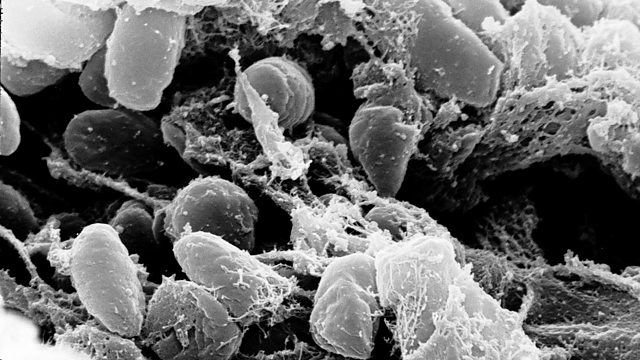Does a cemetery in Kyrgyzstan hold the secret to the Black Death's origin?
Researchers believe they have discovered the origins of the Black Death, more than 600 years after it killed tens of millions in Europe, Asia and north Africa. The mid-14th Century health catastrophe is one of the most significant disease episodes in human history. But despite years of research, scientists had been unable to pinpoint where the bubonic plague began. Now analysis suggests it was in Kyrgyzstan, central Asia, in the 1330s.
Philip Slavin, Associate Professor in History at the University of Stirling, who worked on the study, explains how their research identified the time and place of the plague's origin by studying victims' teeth and finding the plague bacterium, Yersinia pestis, in three of them. They believe the plague crossed over into humans from a rodent, most likely the marmot, and went on to kill as many half of the populations of Europe, the Middle East and Central Asia.
Photo: Yersinia pestis bacteria (the cause of bubonic plague) Credit: Getty Images
Duration:
This clip is from
More clips from Newshour
-
![]()
The calorific study testing the limits of the human body
Duration: 02:24
-
![]()
Malala on PTSD, wearing jeans & feeling trapped by fame
Duration: 06:58
-
![]()
Bishara Bahbah: Trump's backchannel with Hamas
Duration: 07:43
-
![]()
Ian McEwan: my new book asks what the future will think of us
Duration: 07:42






